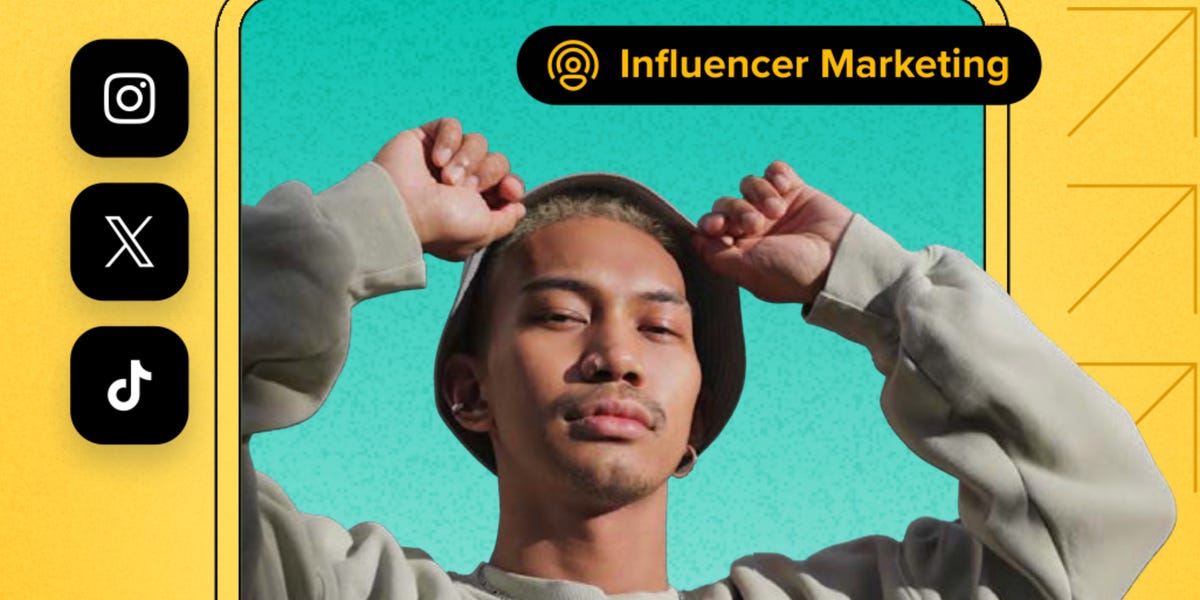These days, you may be hard-pressed to find someone who hasn’t bought something after seeing an influencer recommend it online. At least, that’s what a new report by social-media-management-and-analytics company Sprout Social found.
Forty-nine percent of consumers surveyed by Sprout Social said they’d purchased a product or a service at least once a month because of sponsored content posted by their favorite online personalities.
The April report from Sprout Social also broke down the average amount influencers charge for sponsored posts — with most charging at least $250 — consumer and creator views of AI influencers, and more.
Sprout Social found that influencer trust is especially on the rise with younger generations, including Gen Z and millennials, fueled by well-thought-out product reviews, discount codes, and repeatedly seeing a specific product posted by multiple influencers.
“Our research makes it clear that influencers are not only viable but necessary partners to tap into consumer trust, especially among younger generations,” Scott Morris, CMO of Sprout Social, said in a statement. “Trust is a priceless commodity that every brand must build in order to compete in a market where consumers have seemingly endless purchasing options.”
The report was based on a February survey of 2,000 respondents in the US and the UK who had at least one social-media account on Facebook, TikTok, Snapchat, Instagram, Threads, or X, and followed at least five brands. Three hundred of the participants identified as influencers with at least 10,000 followers on one of their platforms and said they’d earned at least 50% of their annual income from paid brand deals.
The data delved into consumer expectations, buying behaviors, brand partnerships, and industry predictions. Here are four key takeaways:
More than three-fourths of consumers bought a product or service based on influencer posts
Sprout Social’s data found that 89% of respondents said their purchasing decisions had been influenced by a creator in the past year.
In fact, 80% of those surveyed would be more willing to buy from brands that partner with influencers beyond sponsored content, such as in-person events or brand trips, compared to companies that don’t offer these other types of collaborations.
Overall, the consumers were the most likely to engage with influencer content on Instagram but TikTok took the top spot for Gen Zers, especially with the rollout of TikTok Shop.
69% of influencers charge at least $250 to post sponsored content
Influencers’ rates for brand deals depend on various factors, such as engagement analytics, content niches, type of post, and whether they have representation. However, nearly half of the creators in Sprout Social’s report said they’d charged between $250 and $1,000 per sponsored post, with 24% charging $251 to $500 on average and 23% charging $501 to $1,000.
A majority of the respondents — 71% — said they’d offered discounts to brands when working with them on multiple posts, showing the value influencers place on long-term relationships with companies.
Creators also preferred working with brands with clear budgets and payment structures, as well as with those that shared their content values. More than half said those were their most important determinants when deciding between different partnership offers.
Interviews and account takeaways are their least favorite form of paid collaborations
Fifty-three percent of influencers surveyed preferred to make short-form videos for brands, between 15 and 30 seconds. Short-form videos between 31 and 60 seconds were also popular, as were static image posts.
Despite the growing popularity of longer videos on platforms like TikTok, this type of content was among influencers’ least favorite to make with brands, with 27% selecting it as their preferred format, ahead of interviews (19%) and content takeovers (14%).
Many of the influencers surveyed said creating long-form videos takes more time and doesn’t usually pay off in terms of engagement.
Almost half of Gen Zers were more interested in a brand that uses AI influencers
Feelings on AI influencers were split pretty evenly among the consumers surveyed — 37% said they’d be more likely to be interested in a brand that uses an AI influencer, while the same amount said they’d be more likely to distrust a brand.
However, Gen Z was more on board with AI, with 46% indicating they’d be more likely to be interested in a company with an AI influencer.
Meanwhile, many of the influencers surveyed (49%) said they were afraid virtual influencers would take paid opportunities away from humans.
“It has the ability to pull your image and likeness and generate material, so what will be the need for us at that point?” creator Jessica Morrobel previously told BI.
Read the full article here





